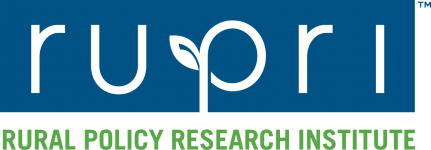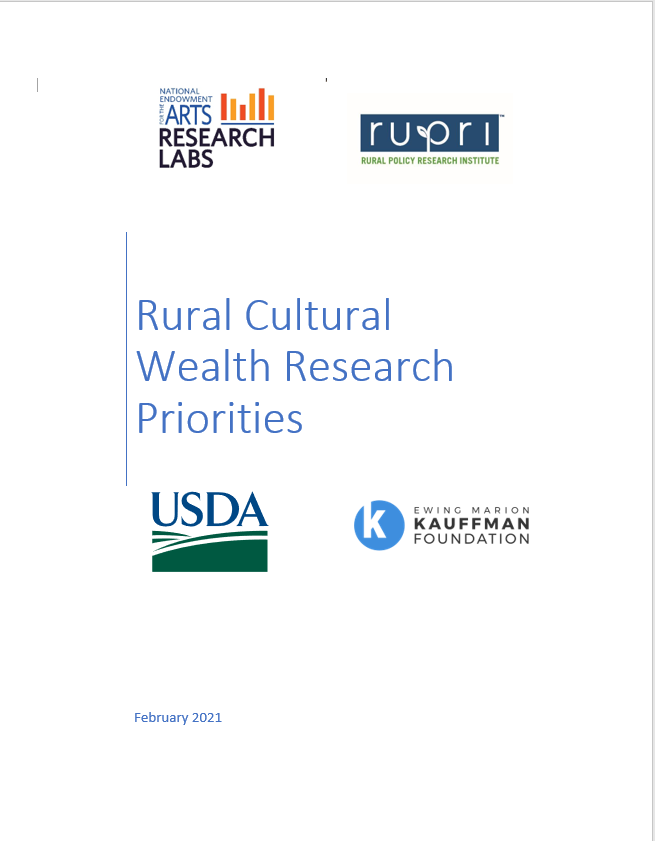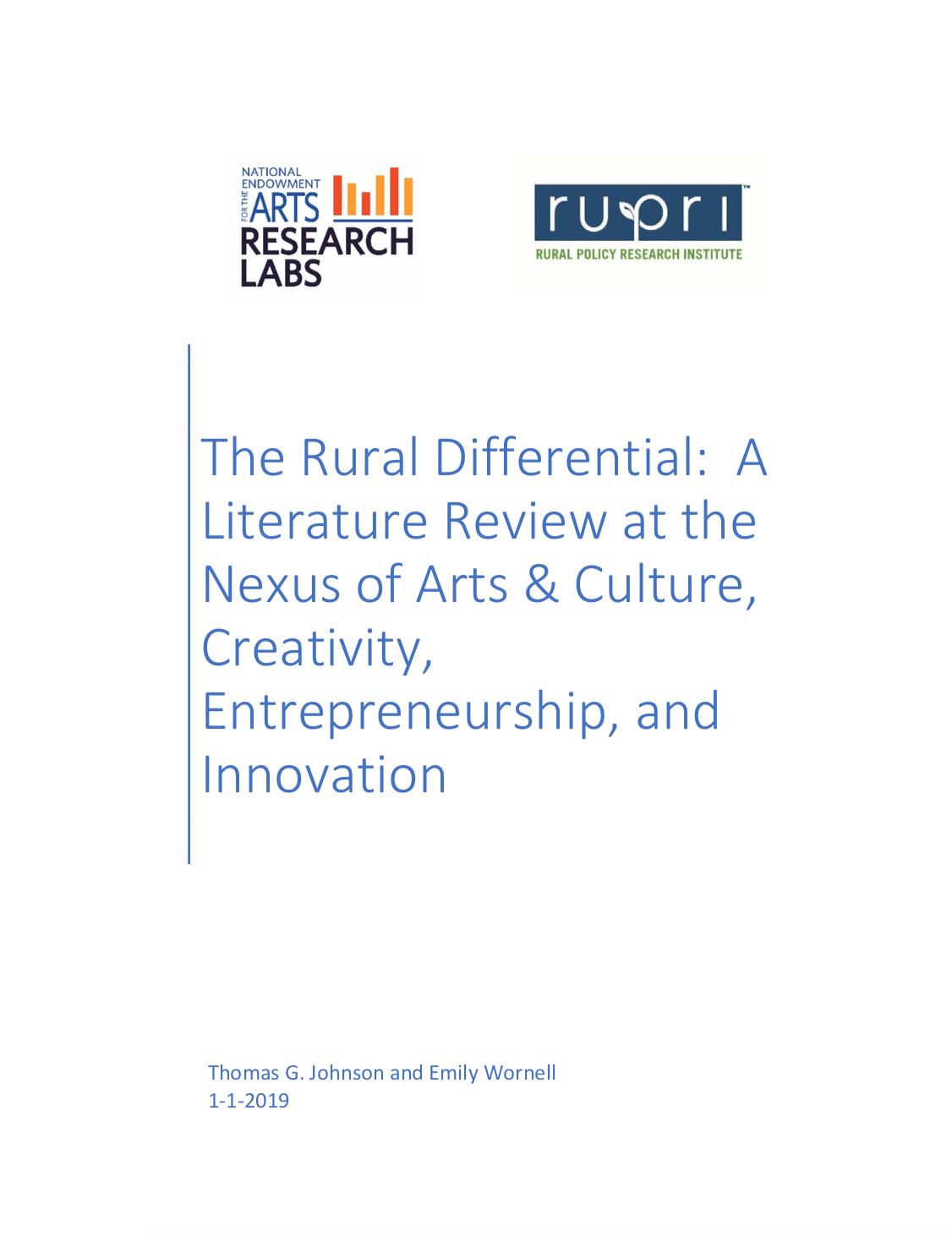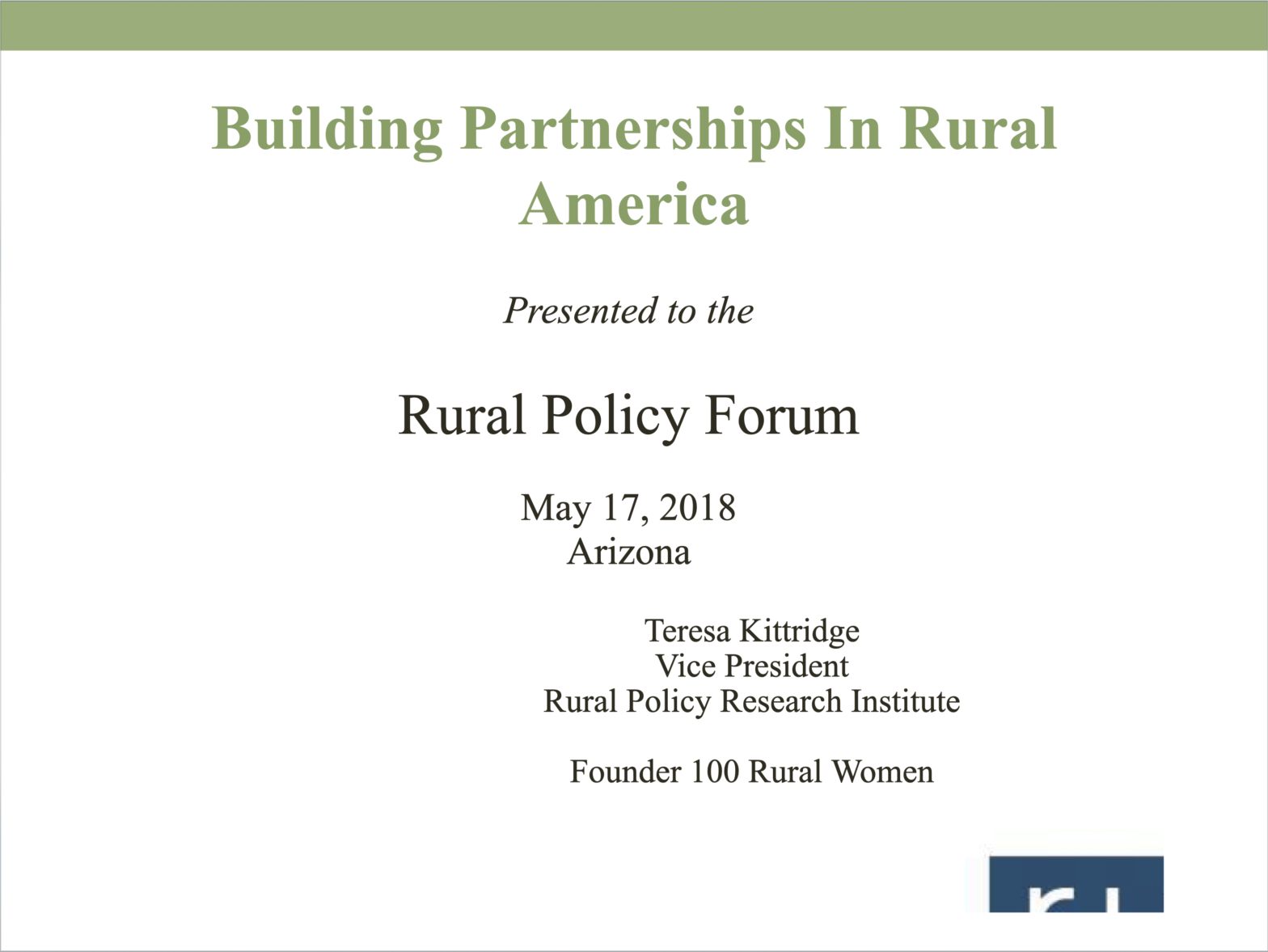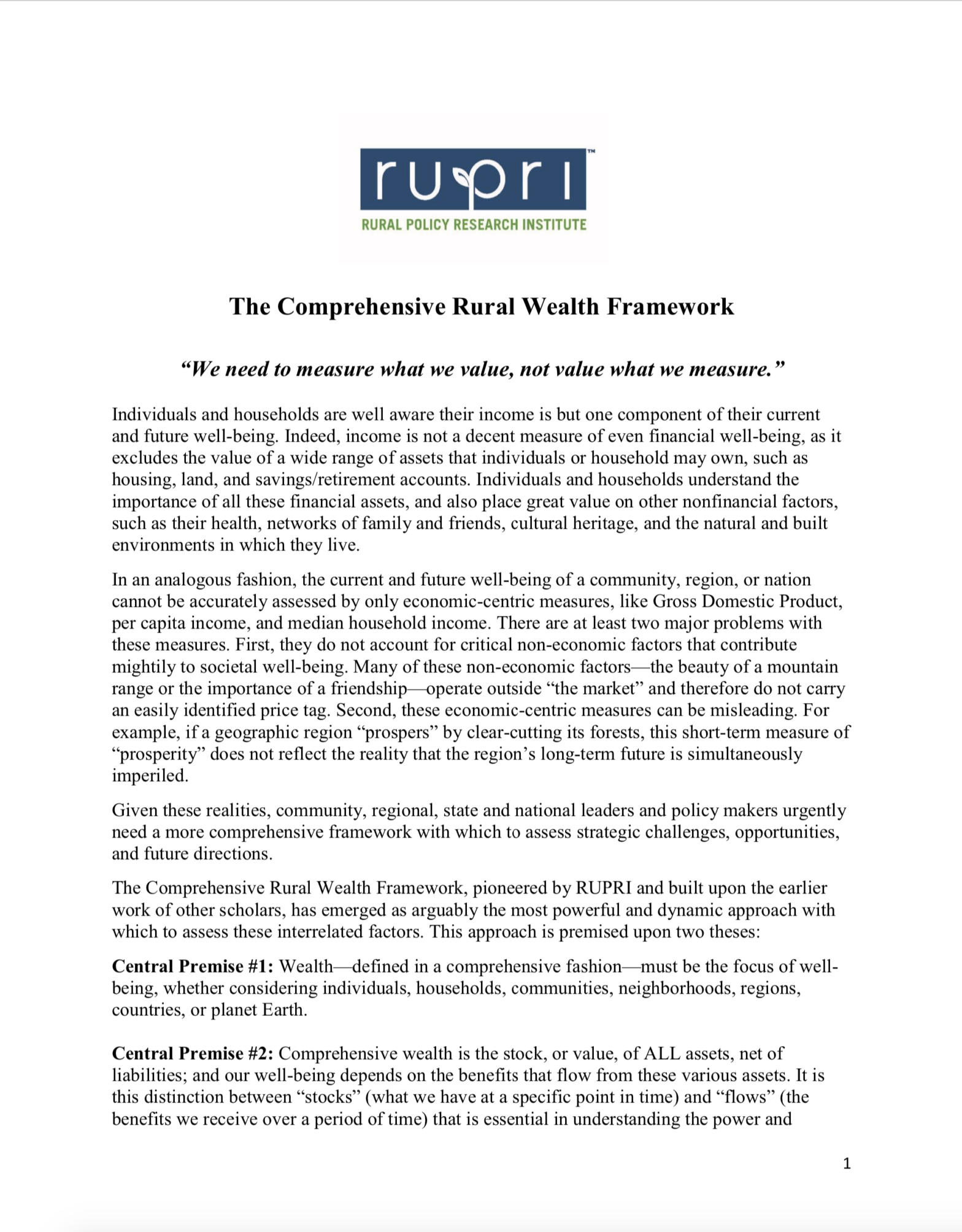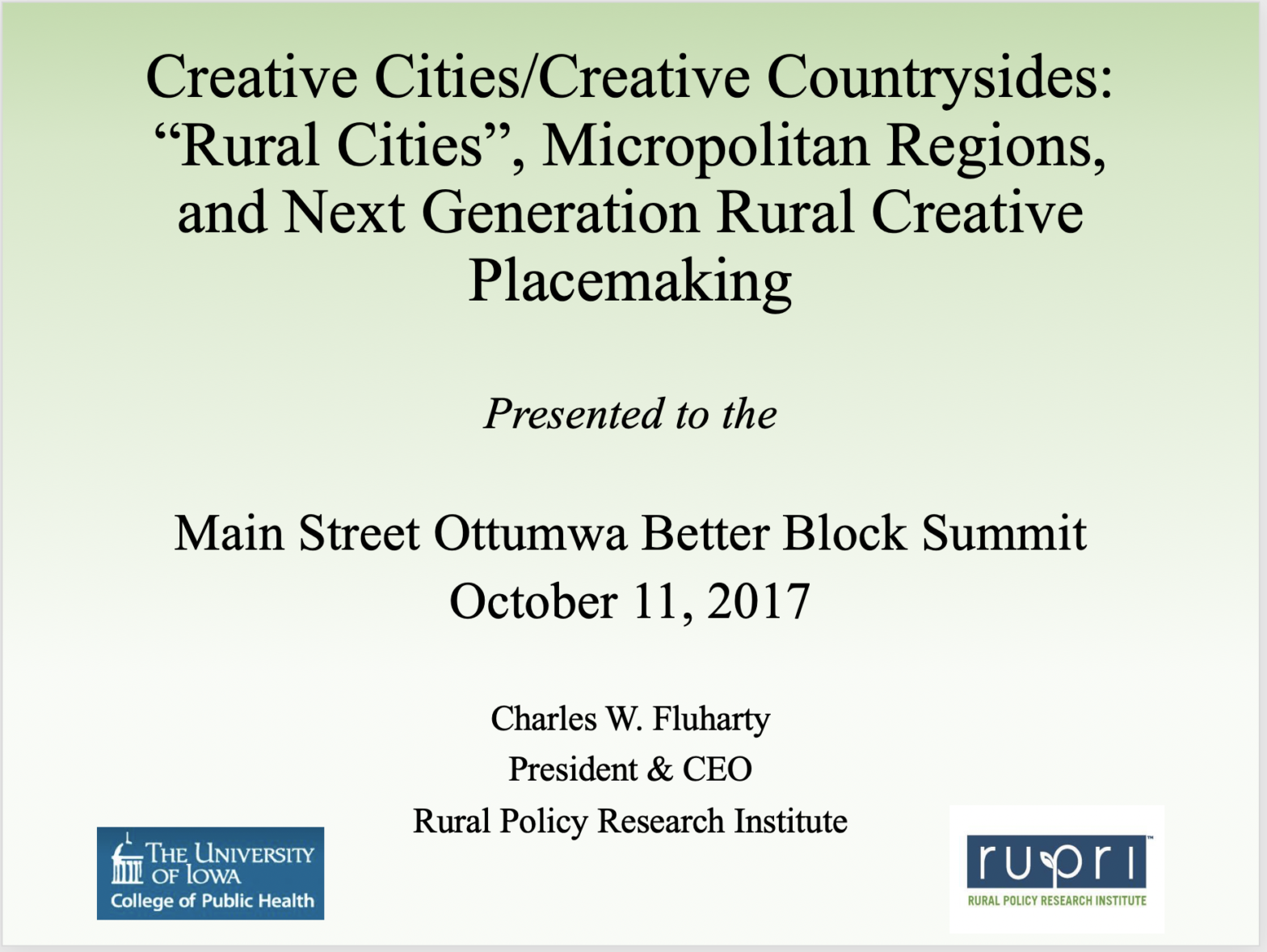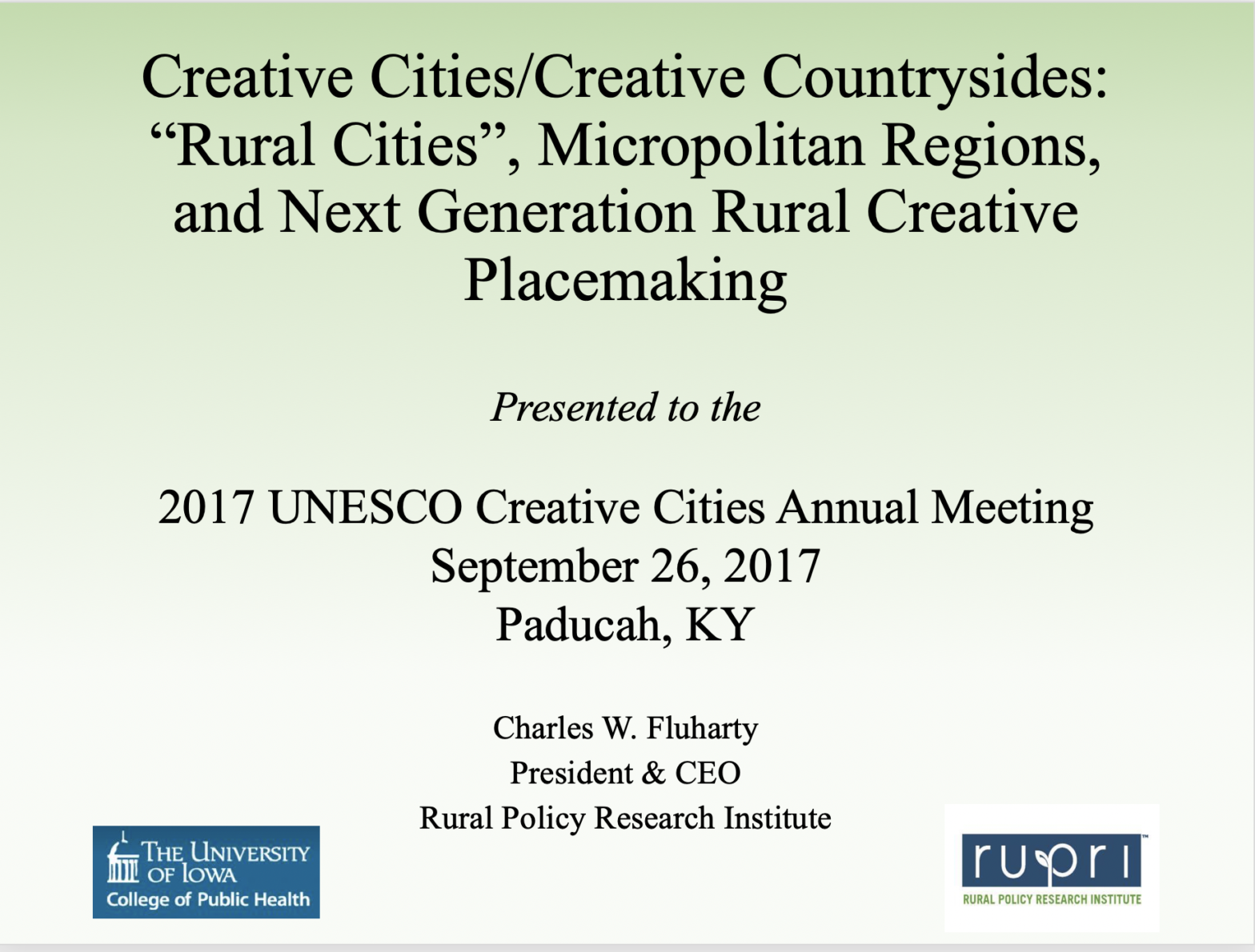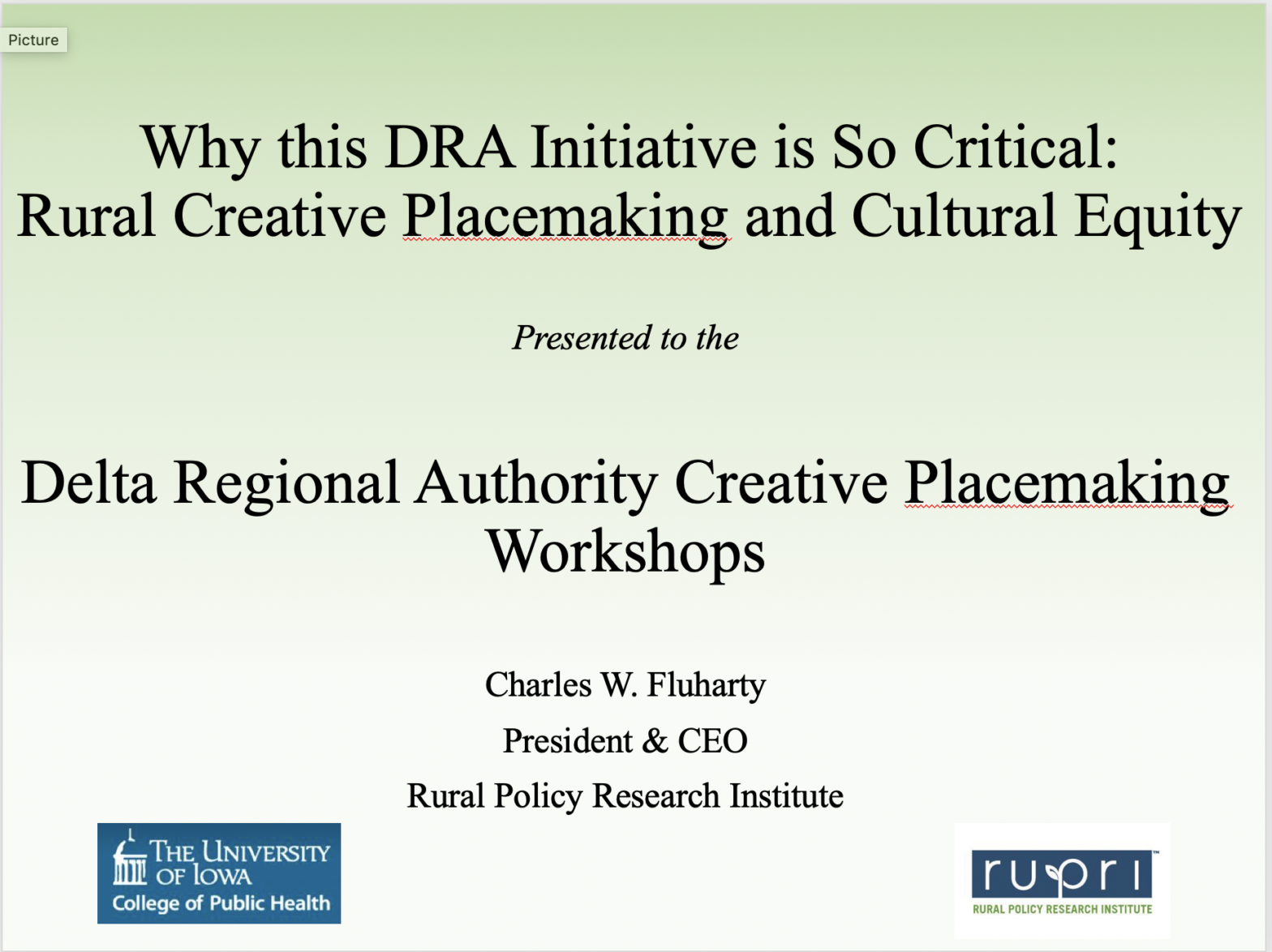In March 2022, RUPRI invited rural artists, culture bearers, art community leaders, and rural researchers in arts and cultural wealth to a two-day convening to discuss practice and scholarship collaborations in rural arts & cultural wealth. The event was sponsored by the Ewing Marion Kauffman Foundation. Please enjoy highlights from the conversation.
Tag Archives: Cultural Wealth
RUPRI Convenes Artists and Researchers to Discuss Rural Arts & Cultural Wealth
March 2022 In a convening sponsored by the Ewing Marion Kauffman Foundation and USDA, RUPRI hosted Collaborations in Rural Arts & Cultural Wealth Practice & Scholarship, a two-day virtual gathering of rural artists, culture bearers, community thought leaders, and the research community. These leaders came together to engage in conversation about advancing our understanding of …
Continue reading “RUPRI Convenes Artists and Researchers to Discuss Rural Arts & Cultural Wealth“
Rural Cultural Wealth Research Priorities. RUPRI Rural Cultural Wealth Lab. February 2021.
This paper follows an extensive review of the research literature at the intersection of three broad areas—1) rural wealth creation and distribution 2) rural arts and culture, and 3) creativity, innovation, and entrepreneurship. The primary goal of the literature review was to identify the most critical issues that are NOT fully understood about these concepts …
A New Conceptual Framework for Rural Cultural Wealth. A product of the NEA RUPRI Rural Cultural Wealth Lab. November 2019.
The New Conceptual Framework for Rural Cultural Wealth describes a conceptual framework within which the arts, culture, and cultural wealth can be understood, measured, and compared. While such a framework can be applied equally well in any geographic context, the focus in this document is on the rural and small city context. Examples and specific …
Existing Conceptual Models of Arts & Culture: An Inventory. Rural Cultural Wealth Lab. January 2019.
The Existing Conceptual Models of Arts & Culture: An Inventory describes and compares conceptual models of arts and culture, creativity, innovation, entrepreneurship, and well-being. Each model attempts to capture a different aspect of this very complex system. Each model therefore provides important insights that help us understand the role and dynamics of arts and culture …
The Rural Differential: A Literature Review at the Nexus of Arts & Culture, Creativity, Entrepreneurship, and Innovation
Our review of the literature reveals that: Current research in arts and culture, creativity, and innovation has a significant metropolitan bias. Most research either focuses solely on metropolitan issues or assumes the arts and culture issues are uniform across the rural-urban continuum. More research on the effect of rural arts and culture on the vitality …
Building Partnerships in Rural America
This presentation explains the work of RUPRI and how it has utilized with communities and addresses the importance and critical need of arts and culture to rural regions. It also speaks of collective impact investing and what it can do as an economic support system. Presented by Teresa Kittridge, Vice President of Rural Policy Research …
Rural Wealth Creation Framework
This paper outlines the importance of financial assets to individuals and households and discusses two major problems with economic-centric measures. It also concludes that community, regional, state and nation leaders and policy makers need a more comprehensive framwork. View Document
Creative Cities/Creative Countrysides: “Rural Cities”, Micropolitan Regions, and Next Generation Rural Creative Placemaking
This presentation rethinks rural wealth, sustainable economic development and cultural equity. It also discusses micropolitan leadership in rural/urban collaboration as well as the Ottumwa Opportunity. Presented by Charles W. Fluharty (President and CEO, Rural Policy Research Institute) to the Main Street Ottumwa Better Block Summit on October 11, 2017. View Presentation
Creative Cities/Creative Countrysides: “Rural Cities”, Micropolitan Regions, and Next Generation Rural Creative Placemaking
This presentation rethinks rural wealth, sustainable economic development and cultural equity. It also discusses micropolitan leadership in rural/urban collaboration as well as Paducah, our national micropolitan exemplar. Presented by Charles W. Fluharty (President and CEO, Rural Policy Research Institute) to the the 2017 UNESCO Creative Cities Annual Meeting on September 26, 2017 in Paducah, Kentucky. …
2017 UNESCO Creative Cities of Crafts & Folk Art Annual Meeting, Paducah, KY
September 24, 2017 – September 27, 2017 The 2017 UNESCO Creative Cities of Crafts & Folk Art Annual Meeting will be held in Paducah, Kentucky from September 24-27, 2017. Chuck Fluharty will be speaking at the event on Wednesday, September 27th as a panelist. Each day of the meeting will begin with a plenary session featuring expert speakers …
Continue reading “2017 UNESCO Creative Cities of Crafts & Folk Art Annual Meeting, Paducah, KY”
Digital Exchange Webinar: Integrating Community Health, Arts, and Culture
June 28, 2017 Join us for this Next Generation Digital Exchange Webinar discussing focused on integrating community health with arts and culture in rural regions. Across the country, new health systems approaches are leveraging multi-sector programs and policies to foster a culture of health in rural communities. Webinar participants will learn from Arkansas, California, Kentucky, …
Continue reading “Digital Exchange Webinar: Integrating Community Health, Arts, and Culture”
Why this DRA Initiative Is So Critical: Rural Creative Placemaking and Cultural Equity
Presented by Charles W. Fluharty (President and CEO, Rural Policy Research Institute) to the Delta Regional Authority Creative Placemaking Workshops in June and July 2017. View Presentation
RUPRI Rural Cultural Wealth Lab: A Conceptual Design
The Rural Cultural Wealth Lab unites the knowledge and experiences of a diverse array ofscholars and practitioners to address some of the most critical issues and opportunities facingrural people and places. It fulfills this need by building innovative metrics that will strengthenpolicymakers’ understanding of the various relationships and assets that define and reveal ruralcommunity wealth.To …
Continue reading “RUPRI Rural Cultural Wealth Lab: A Conceptual Design”
Rural Wealth Creation
Bruce Weber, Thomas Johnson, and Matthew Fannin were key contributors and editors for the book Rural Wealth Creation (2014), which proposes a conceptual framework for rural wealth creation and makes numerous contributions to research on sustainable rural development.
